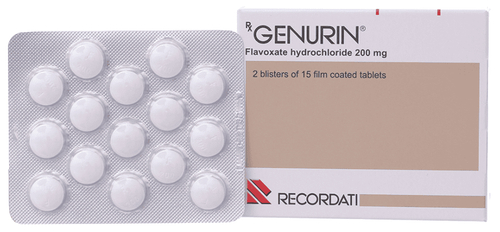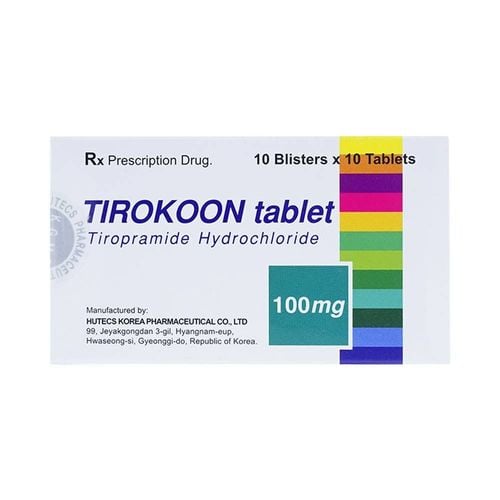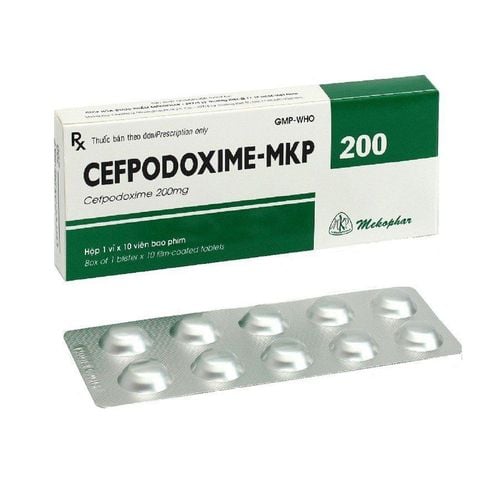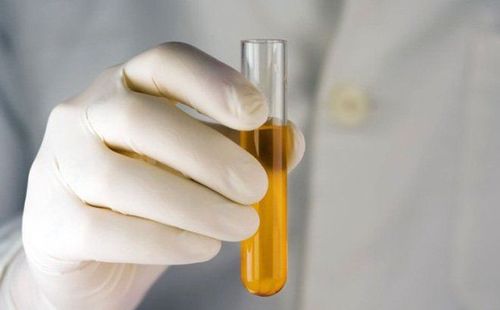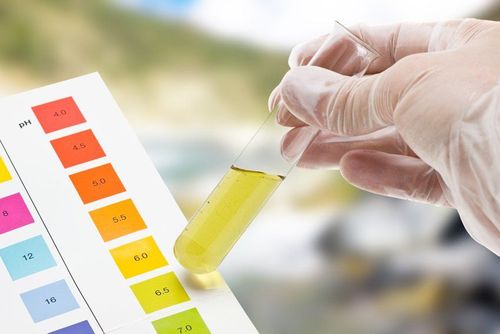This is an automatically translated article.
The article was professionally consulted with Doctor Vo Ha Bang Suong - General Internal Medicine - Department of Examination & Internal Medicine - Vinmec Phu Quoc International General HospitalNormal person's urine will be light yellow, when urine is reddish brown is an abnormal sign, warning of dangerous health problems. So why is urine reddish brown?
1. Red-brown urine warns of health problems?
Normal urine is pale yellow. Accordingly, the yellow color of urine can range from light yellow to dark yellow. This is the result of a pigment in the urine called urobilinogen and it will be diluted or concentrated to certain degrees. Urine color can be changed in some cases from physiological to real pathological. A change in urine color can be an important clue in the diagnosis of urinary tract disease or disease in other organs.There are different causes of red-brown urine. Some reasons are harmless, others require a thorough clinical examination, a combination of urinalysis, biochemistry, and imaging tests to find the cause.
2. What causes urine to be reddish brown?
There are several causes of red-brown urine, including:2.1.Dehydration Dehydration is the most common reason for urine to be reddish-brown. A person can become dehydrated for many reasons, for example:
Excessive sweating. Diarrhea. Fever. Not drinking enough water, especially common in the elderly (because of reduced thirst) When realizing that the body lacks water, the kidneys cope with this situation by increasing reabsorption, retaining water for the body, instead of excreting urine as usual. Accordingly, the urine will be more concentrated and brown in color.
2.2. Blood in the urine In some cases, blood in the urine can cause the urine to appear reddish brown. This phenomenon is also known as hematuria and has many different causes. Mostly due to kidney and urinary diseases. Blood is the result of inflammation of the urinary tract in different locations:
glomerulonephritis, pyelonephritis, cystitis, prostatitis, lower urinary tract infection. Urinary stones: Common are ureteral stones, bladder stones. Injuries cause damage to the kidneys, ureters, bladder, prostate, and urethra. Trauma in the pelvic region. Cancer of the urinary system Some sexually transmitted diseases cause urethritis, genital tract infections, and menstruation

Viêm tuyến tiền liệt gây tiểu ra máu
Consequences of hepatitis lead to hyperbilirubinemia, resulting in red-brown (dark yellow) urine. Besides, cirrhosis, biliary obstruction due to gallstones in the liver, outside the liver also lead to dark yellow urine.
If hepatitis is the cause of your urine brown color, you are more likely to also experience symptoms such as:
Fever Fatigue; Loss of appetite Nausea, vomiting Abdominal pain Clay-colored stools Joint pain Yellowing of the skin or eyes. Along with the symptom of dark urine (sepia), other tests will be ordered by the doctor to give the most accurate diagnosis.
2.4. High-intensity exercise In rare cases, high-intensity exercise can cause muscle cells to break down and leak into the bloodstream. This condition is called rhabdomyolysis or rhabdomyolysis and can change the color of urine from pale yellow to reddish brown. If your urine is brown because of rhabdomyolysis, you may also experience muscle pain or weakness along with it.
Rhabdomyolysis carries the risk of serious, even life-threatening kidney damage. Therefore, if you suspect you have fallen into this category, go to the hospital for medical attention.
2.5. Hemolytic anemia A form of anemia called "hemolytic anemia" destroys red blood cells and gives urine a reddish-brown color. Some patients develop this anemia because they inherited it from their parents. Some people also develop hemolytic anemia as a complication of another medical condition, such as the autoimmune disorder lupus, rheumatoid arthritis, or ulcerative colitis.
Besides red-brown urine, hemolytic anemia can also cause symptoms such as:
Pale, pale skin Yellowing of the skin or eyes Fever Weakness Dizziness Disorder of consciousness; Difficulty with physical activity; Faster heart rate. In which, malignant malaria is one of the typical severe forms with red-brown urine. If you experience these symptoms, see your doctor. Treatment depends on your health and the cause of your anemia.
2.6. Skin cancer Although, very rare, sometimes melanoma causes skin pigment to leak into the bloodstream. This can cause urine to turn brown. The more common sign of melanoma is the appearance of abnormal moles. You should see your doctor if you notice suspicious signs that are developing on your skin or changing rapidly and not going away with time.

Ung thư da có thể liên quan đến việc đổi màu nước tiểu
2.7. Lyme disease Some ticks carry a bacteria that causes serious infections, called babesiosis. This is also one of the reasons for dark urine. Other symptoms if you have had an attack of babesiosis include:
Fever or flu-like symptoms Headache or muscle aches Nausea Abdominal pain. 2.8. Medicines Some prescription drugs can change urine color, such as:
Antibiotics Laxatives Antimalarial drugs Muscle relaxants. Anti-tuberculosis drugs Urine color will return to normal after you complete the prescription.
2.9. Diet Certain foods can turn your urine reddish brown. Horseradish (millet/pea), rhubarb (rhubarb) and aloe vera are foods that can cause your urine to turn brown, if consumed in large amounts in a short period of time. . The color of urine will gradually lighten as these foods are eliminated from the digestive system.
Urine test is one of the important tests in the General Health Checkup packages at Vinmec International General Hospital, helping customers detect diseases through urine at an early stage even when they are not yet diagnosed. have symptoms.
Currently, Vinmec currently has general health checkup packages suitable for each age, gender and individual needs of customers with a reasonable price policy. The results of the patient's examination will be returned to the patient's home. After receiving the results of the general health examination, if you detect diseases that require intensive examination and treatment, you can use services from other specialties at the Hospital with quality treatment and services. outstanding customer service.
Please dial HOTLINE for more information or register for an appointment HERE. Download MyVinmec app to make appointments faster and to manage your bookings easily.





